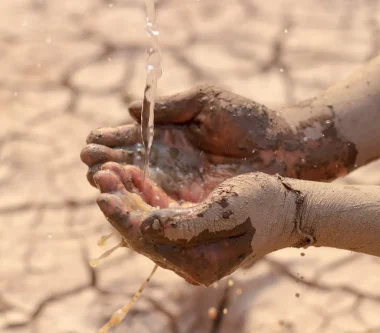Access to clean water and sanitation is essential for health, economic development, and people’s well-being. However, millions of people around the world still lack access to safe sources of drinking water, leading to serious health and environmental problems.
Ensuring clean water is not only a basic need, but an essential condition for the survival and progress of societies.
The impact of clean water on our lives
Clean water is an essential resource for life, and access to it has a direct impact on health, nutrition, hygiene, and economic development. Below, we explore some of the key reasons why clean water is critical.
Vital for hydration and nutrition
The human body needs water to function properly. From temperature regulation to nutrient transport and toxin elimination, water plays a crucial role in every biological function.
Drinking contaminated water can cause dehydration, digestive problems, and serious illness. Ensuring access to safe drinking water is essential for maintaining optimal health.
Prevents the spread of diseases
Contaminated water is a vehicle for the transmission of diseases such as cholera, dysentery, and typhoid fever. According to the World Health Organization (WHO), lack of access to clean water and adequate sanitation is one of the leading causes of child mortality in many parts of the world.
Access to safe water reduces the spread of disease and improves the quality of life for entire communities, reducing the burden on health systems and increasing life expectancy.
Helps eliminate harmful substances from the body
Water not only hydrates, but is also essential for the body’s detoxification process. Through urine and sweat, the body eliminates harmful substances and waste products.
Drinking clean water allows this process to occur efficiently, preventing the buildup of toxins that can cause long-term health problems.
Essential for agriculture and food supply
Food production is heavily dependent on water. Agriculture is the largest water-consuming sector worldwide, and the quality of the water used has a direct impact on food security.
The use of contaminated water for crops can affect food quality and pose a health risk. Ensuring clean water for agricultural production is key to maintaining safe and nutritious food.
Improves hygiene and public welfare
Clean water is essential for personal and community hygiene. Handwashing with soap and water is one of the most effective ways to prevent infection and disease.
Furthermore, access to adequate sanitation systems reduces water pollution and the risk of epidemic outbreaks, improving the quality of life in urban and rural communities.
How to ensure access to drinking water
Universal access to safe drinking water is a global challenge, but there are effective solutions to ensure that more and more people can enjoy this vital resource.
Methods for purifying water
There are various techniques for treating water and making it safe for consumption. However, each method has its advantages and disadvantages:
- Filtration: Removes impurities and particles from water, improving its quality.
- Disadvantage: It does not eliminate viruses or dangerous microorganisms, so it is not a sufficient method if the water is highly contaminated.
- Boiling: Simple but effective method to eliminate bacteria and parasites.
- Disadvantage: It doesn’t remove heavy metals or chemicals from the water. It also consumes large amounts of energy or fuel, which may be unsustainable in certain communities.
- Disinfection with chlorine or ultraviolet light: Eliminates pathogenic microorganisms and improves water safety.
- Disadvantage: Chlorine can produce toxic byproducts and affect the taste of the water. Ultraviolet light, on the other hand, requires electricity and does not remove chemical contaminants.
- Atmospheric Water Generators (AWG): Extract water from the air and purify it without the need for traditional sources, providing an innovative and sustainable solution.
- Advantage: It requires no additional filtration, chemicals, or complex infrastructure. It’s a sustainable, plastic-free solution with high-quality water.
Advancement of sanitation infrastructure
In addition to ensuring clean water, it is essential to invest in sanitation infrastructure to prevent contamination of water sources. Some key strategies include:
- Construction of water and waste treatment plants.
- Expansion of drinking water distribution networks in vulnerable communities.
- Education and awareness raising on the importance of sanitation and hygiene.
An efficient sanitation system reduces the spread of disease and protects water resources.
Long-term, green water solutions
To ensure sustainable access to water, it is necessary to adopt ecological solutions that minimize environmental impact and ensure long-term supply.
Atmospheric Water Generators (AWG) , such as those developed by GENAQ , represent an innovative alternative that allows obtaining drinking water directly from the air, without depending on contaminated sources or expensive infrastructure.
This type of technology is key for communities without access to safe water, areas affected by natural disasters, or places where bottled water poses a serious environmental problem.
Comments



